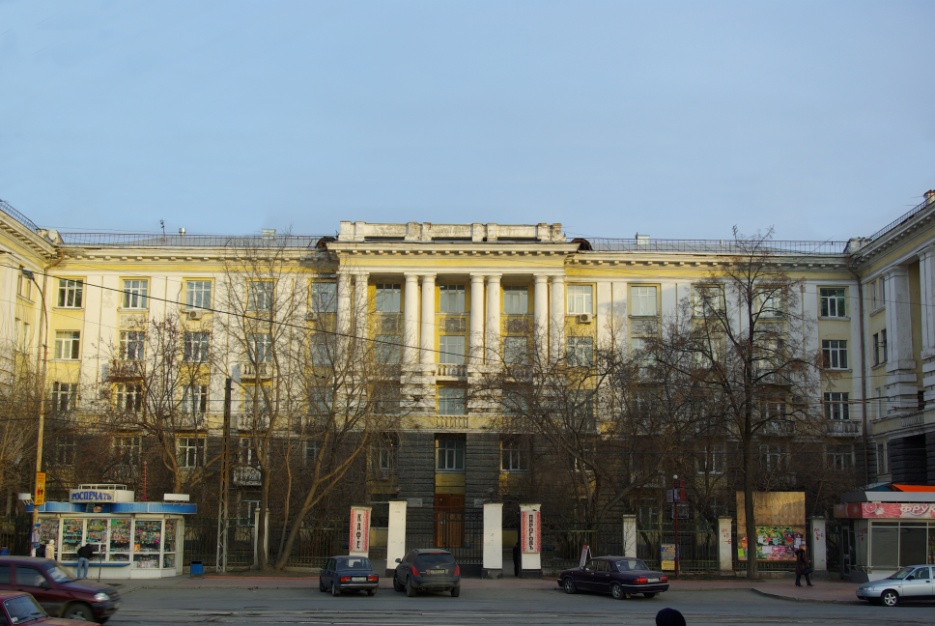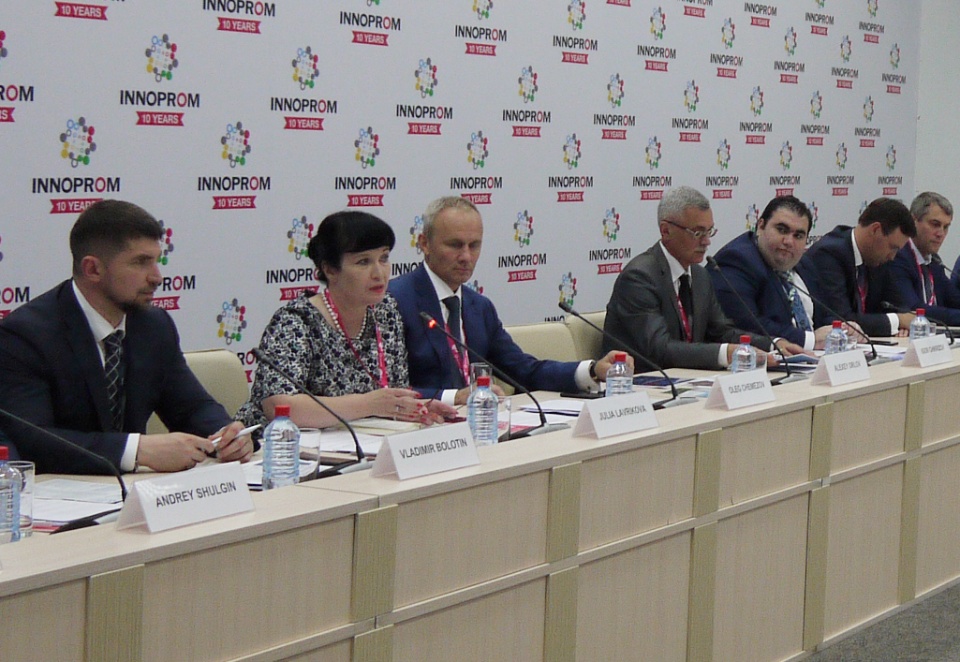Institute of Economics of the Ural branch of the Russian Academy of Sciences
The Institute of Economics of the Ural Branch of the Russian Academy of Sciences (IE), established in 1971, is the largest regional scientific centre. It specialises in the comprehensive study of the modern Ural as a unique natural, geographical, social and economic phenomenon from the perspective of a broad socio-economic approach. The Institute produces fundamental and applied knowledge in the sphere of the regional economics and management. Moreover, on the basis of the produced knowledge, IE provides assistance in implementing the priorities of socio-economic, scientific and technological development of the Ural regions and the whole country.
In their studies, the Institute’s members pay attention to the issues related to:
- socio-economic development of the regional systems;
- structuring of the regions’ economic space;
- modelling of the territories’ spatial development;
- transactional theory of regional institutions of the knowledge economy;
- the territories’ competitive coexistence;
- innovative and financial support for sustainable development in the context of global economic instability;
- regional industrial policy in the context of a new industrialisation of Russia’s old industrial regions;
- the region’s industries;
- the prospects and risks of the digital economy’s development;
- development of the regional agricultural system;
- the region’s economic security;
- natural resources’ social value.

The results of the Institute’s scientific and practical developments are directly used for preparing the legislative acts and law-enforcing documents, and forming federal, regional and municipal strategies, programs or projects. The Institute is engaged in the development of feasibility studies and expert assessment of large investment projects for industrial, construction and transport enterprises; moreover, it is cooperating closely with business. The Institute of Economics has the status of a unified methodological platform for the strategic development of the territories of the Ural Federal District.
IE forms its research program taking into consideration all areas of research carried out by various scientific departments. Such approach allows concentrating the departments’ efforts on achieving the set goal. The IE’s main goal is to find the solutions to the great challenges occurring in the context of the modern Russian society.
The Institute has 5 affiliations located in the cities of the Ural Economic Region: Perm, Chelyabinsk, Ufa, Orenburg, Kurgan.
The Institute has scientific contacts with the leading sectoral institutions, Russian and foreign universities and scientific organisations. In cooperation with a number of universities, IE has created 5 basic departments. Additionally, the Institute has 9 research and educational centres (REC).
The Institute’s scientific staff consists of more than 140 people (or more than 200 people, considering part-time workers), including 1 Corresponding Member of RAS, 2 Professors of RAS, more than 30 Doctors and more than 60 PhDs.
The Institute’s management pays special attention to the development of the staff capacity, improving the system of training the highly qualified personnel demanded by the real sector of the economy, government bodies, higher education institutions. Moreover, IE focuses on creating favourable conditions for ensuring the employees efficient scientific activity, professional growth and well-being. The continuity of scientific generations is ensured by preserving the staff capacity of the older generation and providing conditions for the transfer of their experience and knowledge to young scientists. The Institute of Economics has its own graduate school and offers the young scientists the possibilities to participate in specialised scientific events.

The Institute’s existing scientific capacity allows its effective integration into the paradigm of economic science, which is formed under the influence of the country’s new development priorities. IE’s research trends allow building the models of real economic processes (taking place on the territory) and developing a methodology for harmonising the socio-economic interests of business entities of the territories and the federal centre. Moreover, these researches conceptually justify provisions of scientific, technological, industrial, innovative, social, demographic, financial, agricultural and foreign economic policies in the context of the development of Industry 4.0 and new models for ensuring the state and regions’ environmental security. The Institute is developing a methodology for shaping the strategic priorities of the regional socio-economic systems and forms of spatial organisation, implementing the concept of increasing territorial capital.
The Institute conducts various studies that contribute to: the transition to advanced digital and intellectual manufacturing technologies, robotic systems; the transition to a highly productive and environmentally-friendly economy. Conducted studies ensure the counteraction to technogenic, biogenic, sociocultural threats, terrorism and ideological extremism, as well as cyber threats and other sources of danger to society, economy and state. They help increasing the connectivity of the Russian territory, ensuring that the country occupies the leading positions in the creation of international transport and logistics systems, the Arctic’s exploration and utilisation. Additionally, the studies ensure an effective response of the Russian society to various problems, taking into account the interaction of man and nature, man and technology, social institutions at the present stage of global development, using the methods of the humanities and social sciences.

Over the past five years, the Institute has achieved the following significant scientific results.
The Institute has developed methodological tools for assessing the trajectories of the new industrialisation of the Russian regions. IE has assessed the prospects of establishing the competitive coexistence of the Russian territories in the modern economic space. The Institute has developed a methodological approach for diagnosing and assessing the population’s quality of life. Additionally, the Institute has created a mechanism of linking the socio-economic dimension of the regional development policy with an assessment of the efficiency of the executive authorities’ activities. IE has established a methodological apparatus for determining the natural resources’ social value, adapted to the conditions of the northern region. The project “The Ural Federal District as Russia’s strategic bridgehead in the economic development of the Arctic zone” has been developed. Additionally, IE has developed the concept of resource and technology and stream integration of the Ural macro-region and the Ural sector of the Arctic. The Institute of Economics has established a methodology for long-term forecasting of the municipality’s socio-economic development, including a logical scheme for aggregating the economic sectors, functional relationships, and forecasting algorithms.
An institutional mechanism for shaping and classifying the social innovations in accordance with various and multi-aspect criteria has been developed. The Institute has proposed a methodological approach to the formation of institutional mechanisms for the development and implementation of the population’s economic potential based on the intensification of the municipalities’ sectoral and territorial interaction in the context of limited resources. IE has developed methodological recommendations for assessing the balance level in the region’s nature management using the method of dynamic standards with a justification of a system of indicators (economic, social, environmental) of the balanced nature management by ways of nature management.
The Institute has formulated a methodological approach to shaping a strategy for the financial development of the regional territorial system. A scenario-based model has been applied for designing the processes of movement of financial flows between various institutional sectors.
Moreover, the Institute has developed a model of economic security that allows diagnosing a hazard index, analysing the dynamics of its change, assessing the contribution of an indicator to the general situation taking into account threshold and optimal values.
IE has formed a matrix of institutions supporting industrial development, summarizing the emerging models of relations between the subjects of the regional industrial policy. The Institute has identified the possibilities of institutionalization of the interest groups’s involvement at various stages of the industrial policy’s development. The combined theoretical and methodological platform for shaping a network industry has been substantiated. Furthermore, the Institute has developed a system of actions controlling the structural parameters of industrial development. The system includes a block of regulatory measures related to the competence of authorities (elements of a new network industrial policy), and a block of measures related to the self-organisation of the network industries’ subjects. A methodology for scenario forecasting of industrial development based on the models for assessing the ripple effects has been formed and tested.
The obtained scientific results has been used in the development of: Strategy of the socio-economic development of the Sverdlovsk region for 2016-2020; the Concept of the life quality improvement for the Sverdlovsk Region population before 2030 year — “New quality of life of Ural residents” Strategic Development Plan of Ekaterinburg for the period until 2020; the comprehensive industrial development program for the Sverdlovsk region for the period until 2020; Programs for creating and modernising the workplaces in the Sverdlovsk region for the period until 2020; Strategies for the development of food and processing industry of the Sverdlovsk region for the period until 2020; the Concept of cluster policy of the Sverdlovsk region until 2020; the Concepts for creating and developing the Novokoltsovsky technology park in the Sverdlovsk Region; the Concept of perspective development of residential districts of the municipality of Ekaterinburg city till 2035; Forecast of the socio-economic development of Ekaterinburg until 2035; Substantiation of the Spatial Development Strategy of the Russian Federation on the territory of the Ural Federal District until 2030; Strategies for socio-economic development of municipalities of the Sverdlovsk region 2018-2022; patent for invention "Method of assessing the environment transformation under anthropogenic influence"; expert opinions for the Public Chamber and the Administration of the Governor of the Sverdlovsk Region and the Russian Ministry of Education and Science; scenario-based forecast model for transforming the processes of movement of financial flows between various institutional sectors.